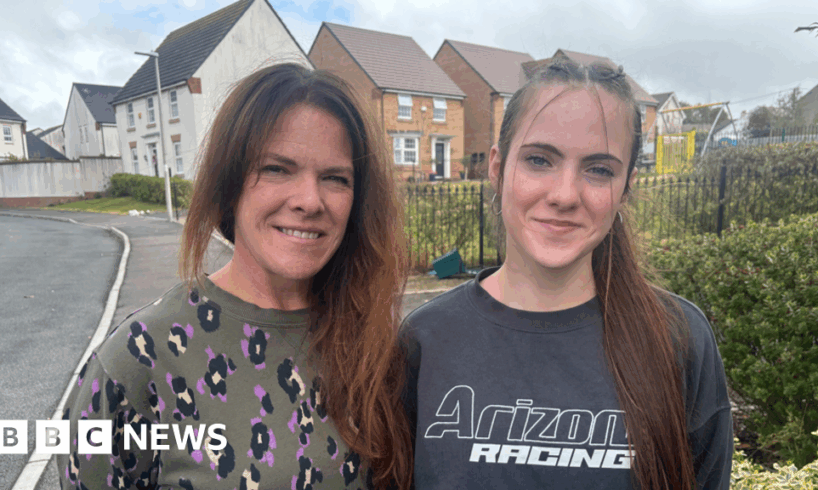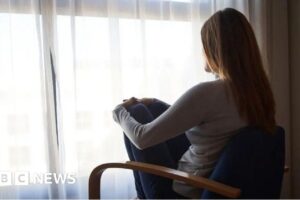
Gareth Pennant JonesNewyddion S4C
BBC
Meinir said her daughter Mali had become “much happier” since she started being educated at home
The number of children being home schooled in Wales has almost tripled since before the Covid-19 pandemic, statistics have shown.
A total of 7,176 children in Wales were home schooled last year, the highest number on record, compared with 2,517 in 2018-19, although this is less than 2% of children in Wales.
The mother of one 15-year-old girl said her daughter had become a “lot happier” since she started being home educated after she started suffering from panic attacks.
The Welsh government said the majority of children were best served by attending school.
Meinir, from Vale of Glamorgan, said her daughter Mali was diagnosed with dyslexia in Year Seven and has struggled with processing information gradually over the years.
“Every now and again she would be in a lesson, and she would ask to leave because she needed a break and she would forget the time because she has time blindness,” she said.
“She would then be walking around the corridors and miss more work. She would go back to the class and would have missed another 20 minutes.
“She was falling behind and I think that led to the panic attacks.”
Mali asked to be educated at home over Christmas and, despite being reluctant at first, her parents agreed to it.
Meinir said she had become a “completely different child and a lot more confident”.
She added: “The standard of her work has gone up and she is concentrating a lot better because she can concentrate in smaller chunks and have a break and come back to it when it suits her. It’s gone really well.”
When records began in 2014-15, there were 1,399 children being home schooled in Wales.
The rate of home educated pupils has also increased year-on-year, from 1.6 in every 1,000 pupils in 2009-10 to 15.3 per 1,000 pupils in 2024-25.
The highest rate has consistently been reported in Ceredigion, where 32.6 of every 1,000 pupils were educated at home in 2024-25.
Parents voluntarily notify their local authority that they are home educating their children unless they have withdrawn their child from school, so the total figure may be higher.
Gavin and Kate Gibson say going back to school has been challenging for a lot of children who worked from home during Covid
Former secondary school teachers Gavin and Kate Gibson started a home education business in 2024 and said many children suffered from social anxiety.
Ms Gibson said: “Schools are very busy places and after being at home in the quiet to work at their own pace in their own time, going back to that school environment for a lot of our children who are neurodiverse was really challenging.”
She said schools could find it difficult to support children as the number of diagnoses of autism spectrum disorder and other conditions had increased.
Wales’ children’s commissioner Rocio Cifuentes said some families felt home education was the “only option” because their children were struggling at school.
“Often this is related to issues like poor mental health, or a lack of support for additional learning needs,” she said.
“Funding and resources for our education system must be a key priority to be able to meet children’s needs in these areas.”
She also said the Welsh government must ensure “all children in Wales can be accounted for and that none are invisible”.
The Welsh government said there had been an increase in people choosing to home educate their children since the pandemic.
“Whilst the majority of children are best served by attending school, we recognise the right to home educate,” it added.
“Where families decide to home educate their children, local authorities have a legal duty to ensure that all children receive a suitable education.”





